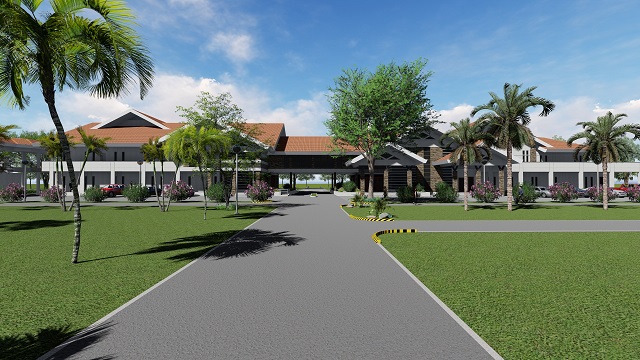After the approval of the Department of Agriculture (DA)-Crop Biotechnology Center (DA-CBC) proposal last year, DA Secretary Manny Piñol has signed the papers for the commencement of its bidding and construction.
To be completed next year, the Center will serve as the hub for implementing effective and efficient agricultural biotechnology research and development agenda.
The P302M project which is funded by the Public Law-480 program, known as Agricultural Trade Development and Assistance Act, with PhilRice counterpart, will cover the construction of the state-of-the-art biotech laboratory, and equipment acquisition, strengthening of technical capability and conduct of relevant R&D training.
Aside from the state-of-the-art laboratory, the building will house a plenarium that can cater 500 to 800 people, a multipurpose hall and a training room which can be partitioned into 4 smaller rooms. These advanced facilities will host biotechnology programs on other priority crops such as corn, coconut, coffee, sugarcane, and banana. Training with scientists from the DA, as well as other researchers from attached and partner agencies and SUC’s and holding of scientific conferences, fora and seminars will be the main function of the plenarium.
In the Philippines, the Southeast Asian Regional Center for Graduate Study and Research (SEARCA) in Agriculture stated that biotechnology had improved farmers’ practices and income and the environment.
“The farm level economic benefit of planting biotech maize in the [country from 2003 to 2015] is estimated to have reached US$642 million,” as published on its website.
SEARCA, one of the oldest regional centers of the Southeast Asian Ministers of Education Organization, also noted that “farms planted with Bt maize in the Northern Philippine provinces have significantly higher populations of beneficial insects such as flower bugs, beetles, and spiders than those planted with conventional hybrid maize.”
In rice research, biotechnology has shortened the breeding of the country’s staple food from 10-12 to 5-7 years. Through biotech, PhilRice has produced 14 climate change-ready varieties including El Niño-ready NSIC Rc 272 (Sahod Ulan 2) and NSIC Rc 346 (Sahod Ulan 11).
Golden Rice is also being developed to address vitamin A deficiency, which affects 2.1 million Filipino children.
“I’m excited for this Crop Biotechnology Center. I’m sure that this will improve biotechnology research in the Philippines, especially now that food demands are more challenging. I hope it will help our farmers grow additional high yielding crops with resistance to climate change and stress. Through this, lives of Filipinos will be more improved,” Julianne Suarez, a research assistant of Central Mindanao University, said.





